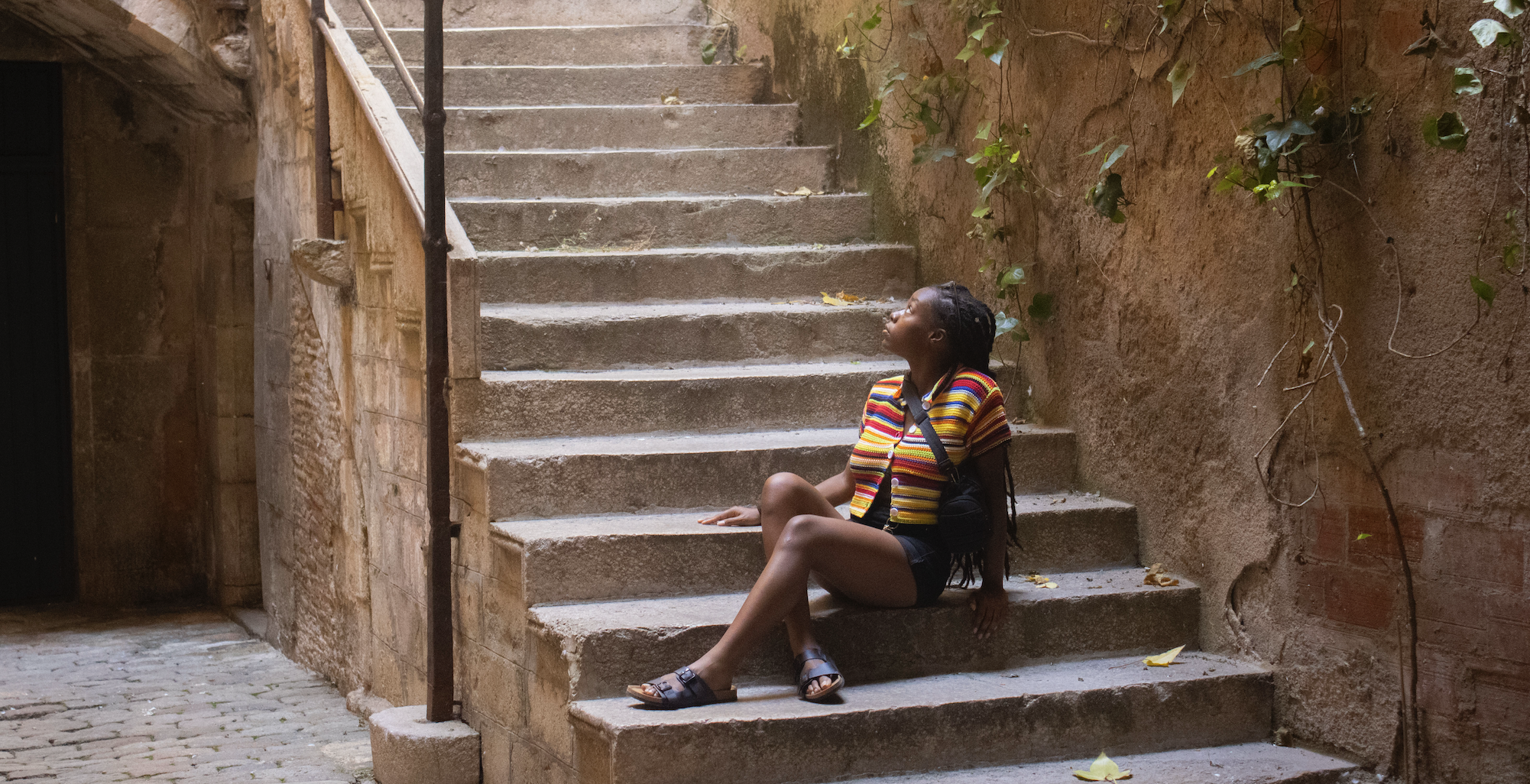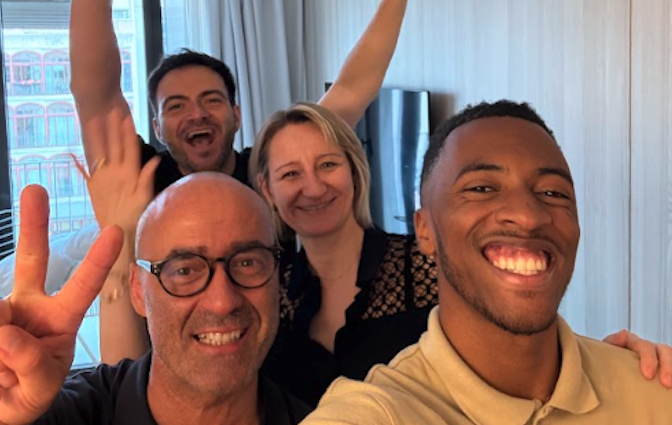I have learned from traveling with my family that in Europe knowing two, three, or even four languages beyond your first language is perhaps normal and an expected skill. With all the countries in close proximity, I have found that the knowledge of languages for Europeans often doesn’t just stop at their home country’s language coupled with English…but expands to include some Romance Languages such as French, Italian, Portuguese, Romanian, etc.
Consequently, since having to choose a language in 7th grade, I have been studying Spanish with efforts to become fluent. After living and working at a startup in Argentina after Freshman year of college for two months, I came into my semester abroad in Barcelona with professional working proficiency in Spanish. Nevertheless, one of the main reasons I hoped to study abroad in Barcelona was to practice and perfect my Spanish…and although Barcelona is in Catalonia and many speak Catalan, Spanish is also widely spoken throughout the city.When arriving at The Student Hotel (TSH) residence at the beginning of the semester in early February, I was also quick to learn that Spanish was not the main language spoken in the residence, but instead English. When you have over one-hundred students coming from each and every end of the world, all coming to Barcelona to study, English becomes the most common denominator that enabled communication and connection, rather than Spanish. However, I was pleasantly surprised to find that three of six of my floormates, and those I would share a kitchen with, were all from different parts of Spain.
Enrique, Manu, and Carlos were a huge reason why my Spanish has reached nearby fluency. When introducing myself, I was sure to make sure that they knew I was here in Barcelona to practice my Spanish. What was interesting was in order for us to speak Spanish together, I had to be quite adamant of speaking the language myself. Enrique is a linguistics major, and consequently, his English is perfect. In the beginning of my semester, I would speak Spanish to him, and he would respond back in English. I would practically yell and say “Enrique! You have to speak to me in Spanish!” or often in Spanish as well “Por favor, necesitas hablarme en castellano, estoy aquí para practicarlo.” Luckily, I had Carlos, Enrique’s close friend, to also remind Enrique to only speak to me in Spanish. Enrique, like many other Spaniards I had met, was so used to speaking English to American English speakers, that it took an extra reminder and much effort, to get him to speak in his first language. Now, three months later, I hands down would say Enrique, Manu, and Carlos are the reasons my Spanish improved while being abroad. From the quick conversations between classes to the several hour discussions about Spanish tradition, our studies, Barcelona happenings, and more that occurred before bed, I adapted more smoothly to speaking Spanish, without having to think about what and how I was saying it.
My Spanish learning at TSH didn’t stop in my kitchen, but also expanded throughout the community as I was able to become close friends with those in the kitchen two floors above me in T5, where the majority of people in the kitchen were from Spain as well. Not short after meeting my friend Marta, a pre-med student from Malaga, in the elevator of the T Building, I became a frequent guest in the T5 kitchen. T5 was where I got the same feeling and learning as I did at work lunches in Argentina: no longer Spanish I was used to from the classroom, but the castellano that includes slang, more complicated sentences, and rapid back and forth. Every week, I’d find an excuse to join my friends in T5—whether that be when they were cooking intricate meals for the kitchen for family-like-dinner, or on Friday Cocktail Nights— I was able to find rambling Spanish that was never-ending, and a family spirit that was so hard to leave behind. I loved and cherished my time in the T5 Kitchen as it’s where I made some of my closet relationships with people in Barcelona, all which were created and sustained in Spanish.[image_with_animation image_url=”6726″ animation=”Fade In” hover_animation=”none” alignment=”center” border_radius=”none” box_shadow=”none” image_loading=”default” max_width=”100%” max_width_mobile=”default”]
The kitchen where my Spanish progressed the most.
[image_with_animation image_url=”6725″ animation=”Fade In” hover_animation=”none” alignment=”center” border_radius=”none” box_shadow=”none” image_loading=”default” max_width=”100%” max_width_mobile=”default”]The couch where our late night talks occurred at 2:00am.
I still savor one comment my friend in T5 said in a group one late night when we were all together. We were sitting around in their kitchen, and my friend Astor said to our friend Jorge, (not even to me directly): “Ella no es una Latina, pero actúa como una Latina,” which translates to “She’s not a Latina, but she acts like a Latina.” As someone who has been studying Spanish since I was twelve and has really tried my best to achieve fluency, this statement made me so happy to the point in which I screeched a little bit and jumped of happiness. Over the top I know but, given this was only about one month into my semester abroad, and my Spanish friend was saying I acted like a Latina, I felt as though my Spanish finally got to a level that I’ve been working towards for almost the past ten years.
However, even after feeling this accomplishment, along with taking B2.2 at UAB, an Intensive Upper Intermediate Spanish Language course, my Spanish Learning is not over. Although I have reached a degree of fluency that I am proud of, I am committed to continue studying and using my Spanish in the United States. Whether that be watching Money Heist on Netflix, listening to the podcast Hoy Hablamos on Spotify, or FaceTiming my friends in T5, I want to make sure I don’t lose the progress I have made.[image_with_animation image_url=”6724″ animation=”None” hover_animation=”none” alignment=”” border_radius=”none” box_shadow=”none” image_loading=”lazy-load” max_width=”100%” max_width_mobile=”default”]



